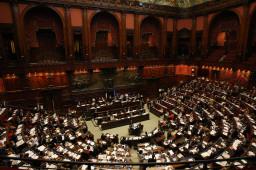The Italian government on Friday backed down on a controversial bill to automatically suspend trials for certain minor crimes that opposition politicians claimed was designed to protect Premier Silvio Berlusconi.
Under new revisions presented to parliament, judges will have to give priority to serious offences such as mafia and workplace accident crimes as well as illegal immigration matters, but can decide themselves if they want to delay trials for lesser crimes for up to 18 months.
The original proposal, which was presented as an amendment to a wider emergency security decree, would automatically have put on hold for a year trials committed before June 30, 2002 in which the defendant could receive a prison sentence of less than 10 years.
It came under heavy criticism from opposition parties, who said it was aimed at helping Berlusconi wriggle free from an ongoing corruption trial and also pointed out that trials for rape and robbery would be included in the freeze.
The National Magistrates' Association (ANM) had also warned the measure would bring ''chaos without precedent'' to the legal system.
Opposition politicians on Friday said the government's step backwards was proof that the original bill had been designed with Berlusconi in mind, since it came a day after the House greenlighted a law to give generalised immunity to the prime minister.
The so-called Alfano Law - after Justice Minister Angelino Alfano - will give immunity to Italy's top four institutional figures (the president, the premier and the two parliamentary speakers) while in office if it is also passed by the Senate.
The security decree, which is being discussed in the House following Senate approval, came into effect in May soon after the government took power but must be approved by parliament within 60 days.









